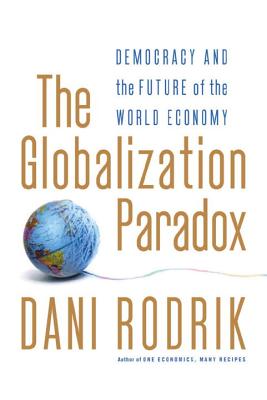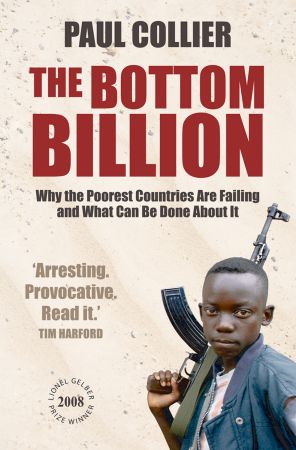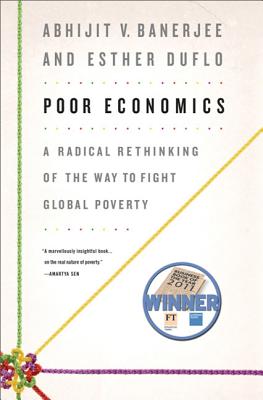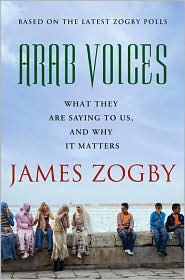Summer is in full swing, with the long hot days, outdoor excursions, and the potential of relaxation beyond the weekends. During the summer months, people often ask for reading recommendations for their vacation time whether it be on the beach, in the woods, or on the road. We thought it would be fun to compile a list of suggested books with an international/global theme from those in our UNA-GB networks, including staff, interns, and our Board and Advisory Council members. Check out our list below and also feel free to share what novels/memoirs/non-fiction books have captivated you lately!:
 During a daytime when it is humid and sunny outside, I enjoy staying indoors and reading my favorite books. One such book is “A Woman Among Warlords: The Extraordinary Story of an Afghan Who Dared to Raise Her Voice” by Malalai Joya. I had read this book while traveling, and it enlightened my tedious commute. There have been many books written by scholars and other experts about Afghanistan, but someone who is a native Afghan and has lived most of her life there, wrote this book. The book is not only about the country, it is also about a strong and inspiring female activist who is forced to live apart from her family and children and changes her home everyday because she has chosen to speak out against the violence and corruption. She has been describes as the “bravest woman in Afghanistan” by BBC. I think everyone who is interested in world affairs and world issues should read this book.
During a daytime when it is humid and sunny outside, I enjoy staying indoors and reading my favorite books. One such book is “A Woman Among Warlords: The Extraordinary Story of an Afghan Who Dared to Raise Her Voice” by Malalai Joya. I had read this book while traveling, and it enlightened my tedious commute. There have been many books written by scholars and other experts about Afghanistan, but someone who is a native Afghan and has lived most of her life there, wrote this book. The book is not only about the country, it is also about a strong and inspiring female activist who is forced to live apart from her family and children and changes her home everyday because she has chosen to speak out against the violence and corruption. She has been describes as the “bravest woman in Afghanistan” by BBC. I think everyone who is interested in world affairs and world issues should read this book.-Muzhgan Rasul, UNA-GB Program Intern
 When will be The End of Poverty? Dr. Jeffrey Sachs gives a new meaning to his PhD, taking up the role of the doctor to impoverished regions and coining the term “clinical economics”, to “cure” the world of extreme poverty. With only four more years left until the 2015 deadline of the Millennium Development Goals, this book is undoubtedly influential to the decisions and policies that will one day eliminate poverty. Dr. Sachs provides a detailed diagnosis of the issues faced by the world’s poorest and weaves in, along the way, vivid anecdotes from his first-hand experience in the rural regions of China, Kenya, Bolivia and other less economically developed countries. Combining all of his research, Dr. Sachs presents a prescription for poverty that calls for international cooperation and action in various domains from infrastructural reforms to increased official development assistance from developed countries. Has Dr. Sachs found the panacea for poverty? Probably not, but The End of Poverty remains a significant contribution to the study of development economics and must be read by anyone who believes in a future without hunger and disease and in a better world for all. -Wing Miriam Wong, Education Intern
When will be The End of Poverty? Dr. Jeffrey Sachs gives a new meaning to his PhD, taking up the role of the doctor to impoverished regions and coining the term “clinical economics”, to “cure” the world of extreme poverty. With only four more years left until the 2015 deadline of the Millennium Development Goals, this book is undoubtedly influential to the decisions and policies that will one day eliminate poverty. Dr. Sachs provides a detailed diagnosis of the issues faced by the world’s poorest and weaves in, along the way, vivid anecdotes from his first-hand experience in the rural regions of China, Kenya, Bolivia and other less economically developed countries. Combining all of his research, Dr. Sachs presents a prescription for poverty that calls for international cooperation and action in various domains from infrastructural reforms to increased official development assistance from developed countries. Has Dr. Sachs found the panacea for poverty? Probably not, but The End of Poverty remains a significant contribution to the study of development economics and must be read by anyone who believes in a future without hunger and disease and in a better world for all. -Wing Miriam Wong, Education Intern
I recently read Arab Voices: What they are Saying to us and why it Matters by James Zogby. Mr. Zogby is the head of the Arab American Institute, and the book covers everything from the way that Arab Americans feel here at home to extensive surveys on the opinions of Arabs and other Middle Easterners about the US and its policies. It is a must read for anyone who has an interest in the modern Middle East and the United States’ relationship with the people there or any American who wants to have a fuller understanding of his or her country and the people who make up its rich and diverse society. -Christopher Asmar, Education Intern

“Five to Rule Them All: The UN Security Council and the Making of the Modern World” by David L. Bosco. This book is a must-read for anyone with an interest in the United Nations and/or international affairs. While many books on the subject are stuffy and academic, Bosco’s account of the formation and history of the Security Council is as accessible as it is interesting. Bosco was formerly a senior editor at Foreign Policy, an international lawyer, and deputy director of a joint UN/NATO refugee repatriation project in Sarajevo. He’s currently assistant professor of International Politics at American University. Also, check out his blog.
-Nick Blake, Education Intern

I would recommend “Paris: 1919” by the great Canadian historian Margaret MacMillan. It regards the negotiation of the Treaty of Versailles in Paris with all of the backdoor dealings following the First World War. MacMillan uses a critical analysis to persuasively argue against many of the accepted beliefs about the Paris peace process. It is a fascinating read and is presented in a very accessible manner, highly recommended for the amateur historian. The book has received a great deal of renown since it has been published and provides a vital backdrop to modern day world politics.
-James Fargher, Education Intern
 Dani Rodrik’s The Globalization Paradox: Democracy and the Future of the World Economy is a well argued brief that democracy is necessary to temper the the idealistic notion that globalized markets are self regulating. He dives into fascinating case studies of the world economy and how the most successful and highly developed economies protected their domestic interests from the forces of globalization while simultaneously investing in health care and education which allowed domestic labor markets to take advantage of opportunities as they arose.
Dani Rodrik’s The Globalization Paradox: Democracy and the Future of the World Economy is a well argued brief that democracy is necessary to temper the the idealistic notion that globalized markets are self regulating. He dives into fascinating case studies of the world economy and how the most successful and highly developed economies protected their domestic interests from the forces of globalization while simultaneously investing in health care and education which allowed domestic labor markets to take advantage of opportunities as they arose.– Jennifer Irizarry, UNA-GB Education Coordinator
The Blue Sweater is the inspiring personal memoir of Jacqueline Novogratz, the founder of the Acumen Fund and a dynamic leader committed to combating global poverty in innovative new ways. The book’s title comes from one of Novogratz’ first experiences with globalization -a decade after she had donated a unique handmade sweater she wore as a child to Goodwill, she came across the exact same sweater on a young boy in Rwanda. Her story spans the difficulties of development, aid and poverty reduction, beginning from her firsthand experiences on the ground in Africa and follows her as she goes through business school, enters the workforce, and learns the power of philanthropy and finances. Ultimately her focus becomes a forward form of philanthropic investing called “patient capital”, which is creating the potential to make people self-sufficient and change millions of lives. As the website aptly describes, this book is “more than just an auto-biography or a how-to guide to tackling poverty; [it] challenges us to grant dignity to the poor and to rethink our engagement with the world.” Just the challenge worth accepting over the summer!
-Kaitlin Hasseler, UNA-GB Program Manager
 Additional suggested readings include: Gandhi: The True Man Behind Modern India by Jad Adams.
Additional suggested readings include: Gandhi: The True Man Behind Modern India by Jad Adams.
-Valerie Epps, UNA-GB Board Member.
Th e Lady and the Panda by Vicki Croke for an intriguing read. And, it has a local Boston angle to the story too.
e Lady and the Panda by Vicki Croke for an intriguing read. And, it has a local Boston angle to the story too.
-Kari Heistad, Board Member.

 I enjoyed the Power of One by Bryce Courtenay and The Power of Gold by Peter L. Bernstein.
I enjoyed the Power of One by Bryce Courtenay and The Power of Gold by Peter L. Bernstein.
-Will Febbo, Board Member.
 The Bottom Billion by Paul Collier, an incisive insight into the rampant poverty in the world’s midst of plenty.
The Bottom Billion by Paul Collier, an incisive insight into the rampant poverty in the world’s midst of plenty.
-Ajmal Qureshi, Board Member.

Po or Economics by Banerjee and Duflo, 1491 by Charles C. Mann and The Great Bridge by David McCullogh.
or Economics by Banerjee and Duflo, 1491 by Charles C. Mann and The Great Bridge by David McCullogh.
-Clark Abt, Advisory Council Member.
Again, please share your suggestions with us as well so we can continue to educate one another on the many global challenges we have and are facing.
-Muzhgan
